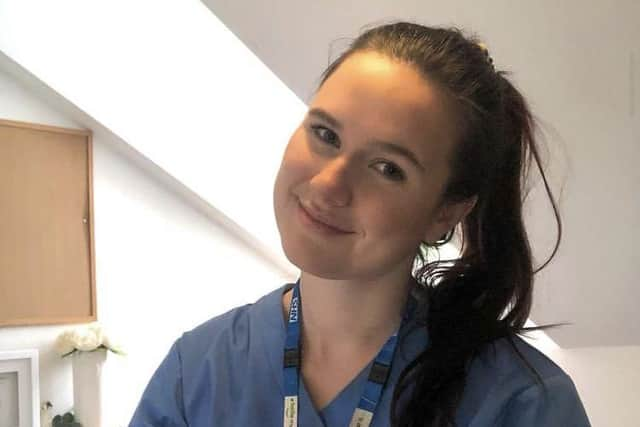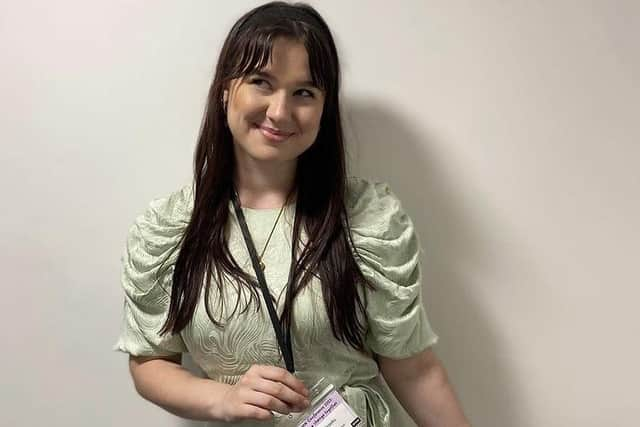Former Northampton student praises scheme for allowing her to study medicine at university
and live on Freeview channel 276
A former Northampton Academy student has praised the widening participation scheme for enabling her to study medicine at the University of Sheffield.
Leah Brooks, a fourth year medical student, had lowered entry grades and more support when applying to study medicine as she is from one of the lowest socio-economic areas.
Advertisement
Hide AdAdvertisement
Hide AdHowever, the anxiety and imposter syndrome caused by being surrounded by privately-educated students led to the deterioration of her mental health and she took time out from her course.


Leah said: “Until I went to university, I never realised the lack of support working class people get - we don’t get private tutors or mock interviews to prepare.
“Without the support and contextual offer I received from the scheme, I wouldn’t have been able to achieve my dream of going to medical school.”
She says now the students are all on an “equal playing field” as they receive the same treatment at university.
Advertisement
Hide AdAdvertisement
Hide AdAhead of her results day, Leah convinced herself she was not going to land a place at the University of Sheffield and said: “It was the best feeling ever to get into medical school.


“The university offers were shocking in themselves, let alone getting accepted.
“I broke down in tears when I found out, and when I knew my hard work had paid off.”
Despite her excitement for the next chapter, a few months in when group work began, Leah began to label others in her group as more intelligent and did not feel worthy enough to be there.
Advertisement
Hide AdAdvertisement
Hide AdDuring the pandemic when teaching was moved online, Leah did not have to face these feelings and experiences - until she returned to placement and it made her feel as though she “did not belong” at medical school.
It took time off university to make Leah realise others felt the same anxiety and imposter syndrome she did, and this was “comforting”.
She said: “I learnt it is important to take your foot off the peddle - and it takes confidence to take a step back and focus on yourself.
“The pressure and expectation surrounding medical school begins at the application process. From the very beginning, you need to congratulate yourself even on the small wins.”
Advertisement
Hide AdAdvertisement
Hide AdHaving been through this herself, Leah has become an advocate for widening participation schemes and mental health on social media - and has accumulated a following of around 2,000 on Instagram, Twitter and TikTok.
She also talks at conferences, webinars and shows for UCAS, the system students use to apply for universities.
“It’s the best feeling being able to help others through my platforms, and I wish I could talk to my younger self,” said Leah. “I feel very lucky and privileged.”
She advises anyone who believes they are not intelligent or financially-stable enough to go to university to research schemes which may be able to help, and use social media to reach out to people and organisations for free advice.
Leah said: “It’s about finding peace through enjoying small things when times are hectic.”
You can follow Leah’s social media pages by searching @wellnessmedic on Instagram, Twitter and TikTok.

